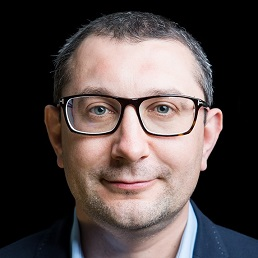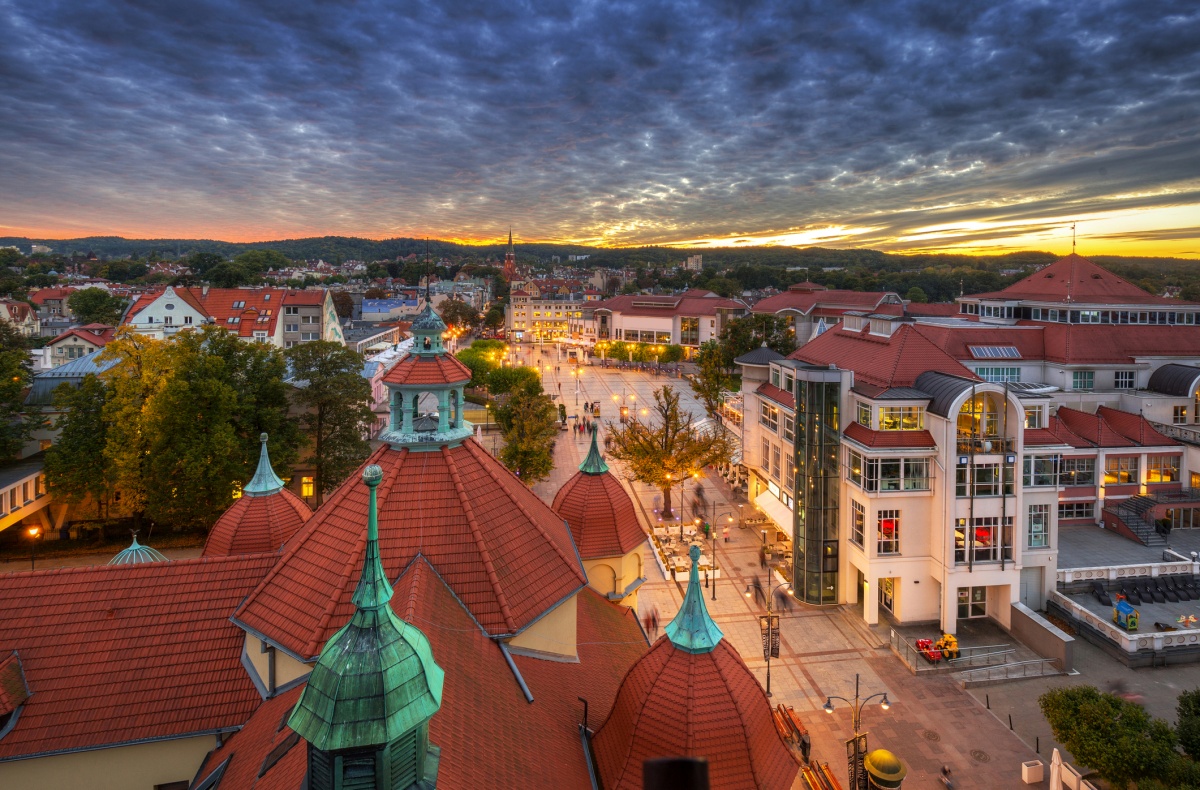Sopot, located in the northern Poland on the Baltic sea, is a city with a special microclimate. It enjoys a status of a health resort and it attracts thousands of tourists every summer. Despite these advantages, for many years, the city has been experiencing depopulation and it is now inhabited mostly by an aging population. Moreover, the robust tourist industry is both, a potential and a burden for Sopot. The city must also face the challenge of climate change. Therefore, the Municipality of Sopot commissioned a comprehensive diagnostic report that would result in developing a multifaceted development strategy for Sopot, for the period 2021-2030. An interdisciplinary research team from SWPS University rose to the challenge. The team included: Professor Mikołaj Cześnik (political scientist), Professor Mirosław Filiciak (cultural studies researcher), Professor Karol Olejniczak (public policy expert), Professor Michał Wenzel (sociologist), Dr. Radomir Matczak (regional development expert), Martyna Obarska (cultural studies researcher), Wawrzyniec Smoczyński (analyst), Katarzyna Żukowska (psychologist), Daniel Matusiak (analyst), and Aleksandra Litorowicz (cultural studies researcher).
Problem
Gradual depopulation of Sopot
Sopot is regarded as the most prestigious city in the so-called tri-city, a cluster of three cities (Gdańsk, Gdynia, Sopot) on the Baltic sea in northern Poland. It is a popular tourist destination. Residents of Sopot actively participate in all aspects of the local community life. Such as civic initiatives, local government, and activities of various foundations and societies. They are also eager to pursue continuous education and attend the University of the Third Age at SWPS University in Sopot. Sopot is also a city with great natural assets. Despite all these positives, for years, Sopot has been facing a growing list of problems, for example: touristification, aging population, gentrification, lack of affordable housing, and depopulation as young people leave Sopot for other larger cities.
Tourism is one of the key sources of income for residents of Sopot. However, it presents many inconveniencies for the locals. Residents complain about crowds caused by too many tourists, garbage on the streets, price increases, noise, illegal hotels and hostels, and homogenization of products and services focused entirely on the visitors to the city. Often, the residents feel like strangers in their own neighborhoods. Permanent residents of Sopot wish that their preferences and the quality of life were considered, and that their needs were addressed. They wish that Sopot offered spaces and amenities for persons with modest incomes, senior citizens, and places fostering intergenerational relationships.
On the other hand, an influx of new and younger residents to Sopot is hindered. Property prices for new builds and existing homes in Sopot are way out of reach for the majority of young people. Furthermore, the number of newly built homes and apartments is small due to the geographical location that is limited by the shore line on one side, protected forests on the other, and the growth of the neighboring municipalities of Gdynia and Gdańsk on the third side.
Due to these challenges, the city needs a long-term strategy that will ensure a multifaceted development of Sopot in the upcoming years and will transform it into a better place of residence for permanent inhabitants.
Solution
A report supporting the development of a long-term strategy for Sopot and its residents
The “Sopot Diagnosis” project conducted by an interdisciplinary research team from SWPS University, led by Professor Mikołaj Cześnik, Director of SWPS University’s Institute of Social Sciences, was commissioned by the Municipality of Sopot. It describes an expert assessment of the current situation and the key challenges that the city and its residents are facing. Currently, the researchers are developing a strategy that will address the problems revealed in the data-gathering stage. During the first phase of the project, the researchers collected and analyzed data to identify the main tensions and problems in the city. Recently, the team has been working with Sopot residents on the analysis of the most urgent challenges and has been developing a strategy for the upcoming decade. The diagnoses phase was led by Professor Mikołaj Cześnik, while the strategy development phase is spearheaded by Martyna Obarska, cultural studies researcher, from the Faculty of Humanities in Warsaw, together with a team of theoreticians and practitioners specializing in public policy.
The “Sopot Diagnosis” report includes the analysis of natural, human, economic and cultural capital of Sopot. It focuses on the biggest challenges facing the local government, problems bothering permanent residents of Sopot, and obstacles to investment in the city’s development. Experts involved in the project employed various research techniques, such as: analysis of data available in public databases, desk research of previously published reports on municipal policies around the world, public surveys, workshops with Sopot residents, future scenario analysis, and gathering expert opinions. During the strategy development phase the research team has also been working on an urban analysis and developing a model of a functional and spatial system model for city infrastructure.
Comprehensive research and analysis conducted by researchers from SWPS University provide invaluable support to Sopot’s administration in planning future investments and initiatives that not only improve the quality of life of Sopot’s residents, but also will attract new people willing to live there.
Why?
We are open to collaboration with local governments
SWPS University conducts many projects that find applications in many areas of the economy, arts and culture, politics, and community life. The “Sopot Diagnosis” reports has been prepared by a team of sociologists, political scientists, public policy experts, economists, and cultural studies researchers. They developed an extensive diagnosis of the current situation, focused on practical aspects of the issue, and they have been working on the development of a strategy addressing the diagnosed problems. This will enable the residents and their representatives in the City Hall and the local administration to develop custom-made solutions aimed at future development of Sopot.
Experts from SWPS University believe that research should provide practical solutions that improve quality of life for people. Therefore, SWPS University is open to collaboration with public administration, institutions, NGOs, and as in this case, local governments.

The Head of the interdisciplinary team that has developed the “Sopot Diagnosis” report, Director of SWPS University’s Institute of Social Sciences, sociologist and political scientist. He researches political and social choices and attitudes. He specializes in the analysis of political systems, in particular democracy. He comments regularly on current public and political affairs in the Polish media. He is a member of the Polish National Election Study (PGSW) founded and run by researchers from SWPS University and the Polish Academy of Sciences (PAN), which aims to objectively record and analyze the most important political events, such as general elections, in the country.

Leader of interdisciplinary team responsible for the strategy phase of the “Sopot Diagnosis” project; coordinator of the so-called “urban semester” at SWPS University’s School of Ideas, an innovation design program. She is an avid proponent of an interdisciplinary approach to studies on urban life. She researchers initiatives that bridge architecture, urban planning and civic initiatives. She is the leader of the Odporne miasto (A Resistant City) program run by a newly established Center for Climate Action and Social Transformation, at SWPS University. She is Deputy Editor in Chief of the Magazyn Miasta (City Magazin) publication as well as a co-host of the Usłysz swoje miasto (Hear your city) radio program, and the Magazyn Miasta podcast at TOK FM radio station. For the past ten years, she has been running research and training workshops for public administration officers, NGO employees, and seniors.

